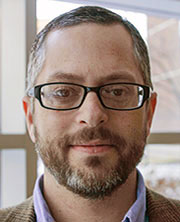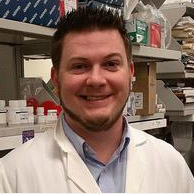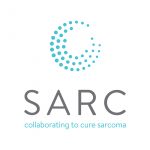Rein in Sarcoma proudly announces a $150,000 research grant approved by the Rein in Sarcoma Board in January, 2019. This grant will fund the following three exciting University of Minnesota Masonic Cancer Center projects:
“MYOG Promoter-Controlled Oncolytic Adenovirus to Treat PAX3-FOXO1-Positive Rhabdomyosarcoma” | $50,000

Principle Investigator: Masato Yamamoto, MD, PhD
Co-Investigator: H Yoshida, MD, PhD
Summary: Rhabdomyosarcoma (RMS) is a malignant skeletal muscle tumor which occurs in children and adolescents. About 30% of RMSs are alveolar type (ARMS), and most of ARMS patients has PAX3-FOXO1 fusion gene created by chromosomal translocation. PAX3-FOXO1 is a trans-activator, which increases expression of many cancer-related genes, causing unfavorable outcomes such as higher prevalence of metastases. PAX3-FOXO1-positive ARMS therefore has worst prognosis among RMSs and needs novel therapies desperately.
We have been developing oncolytic adenoviruses (OAds) which selectively replicate in and kill the cancer cells. We have reported tumor-specific promoter-controlled OAds are effective when the promoter activity has a large difference between tumor and normal tissue. We therefore searched a promoter with such profile for RMS.
Myogenin (MYOG) play important roles for the skeletal muscle differentiation process. In ARMS, PAX3-FOXO1 dictates MYOG expression and contributes to tumor development. Interestingly, MYOG promoter (MYOGp) with mutation in MEF2 site shows strongly activity in PAX3-FOXO1-positive ARMS but no activity in normal muscles. We therefore will develop OAd regulated by the mutant MYOG promoter in order to target ARMS using PAX3-FOXO1 as a trigger. Our preliminary data has already shown that the OAd controlled by MYOGp with MEF2 mutation specifically kills PAX3-FOXO1positive cells. However, clinical translation requires further assessment of the function of our OAd with mutant MYOG promoter.
In this project, we will first assess OAd function in vitro and then analyze tumor suppression, intratumoral virus spread, and adverse effect in vivo. We believe this novel therapy can change the treatment of PAX3-FOXO1-positive ARMS.
“SHH signaling genetic alterations: A relevant and targetable trait in peripheral nerve sheath sarcomas” | $50,000

Principal Investigator: David Largaespada, PhD
Summary: Neurofibromatosis type 1 syndrome (NF1) is a common genetic disease. NF1 patients are predisposed to several kinds of sarcoma, especially malignant peripheral nerve sheath tumors (MPNSTs) which occur in adolescence or young adulthood in NF1 patients. Half of all MPNSTs occur in NF1 patients, the other half occur in non-NF1 patients. MPNSTs, about 10% of all soft tissue sarcoma, are among the most aggressive. These are hard tumors to treat and the overall 5-year survival rate is about 50%. Surgery and radiation seem to be effective, but chemotherapy may or may not be effective. New treatments are needed. We’ve recently learned, through our research, that a gene called PTCH1 is inactivated, in some MPNSTs. This subset of MPNSTs is likely to be sensitive to an FDA approved drug called Vismodegib (trade name Erivedge) which is used to treat basal cell carcinomas of the skin, which also usually have mutations in PTCH1. We must do some lab research on MPNST samples growing in tissue culture dishes and in mice, to make sure this is going to be true. We can then try Erivedge in patients with PTCH1 mutant MPNST. This work could finally provide a new form of therapy for some MPNST patients. We have an FDA approved drug ready to go and this idea could be rapidly tried in people.
“Registry-based analysis of risk and survival for young-onset sarcomas.” | $50,000

Principal Investigator: Logan Spector, PhD
Sarcomas are an understudied group of over 50 connective tissue cancers that are rare, deadly, and disproportionately occur early in life. Because sarcomas are so rare, little is known about the factors driving development and progression in young onset cases (<40 years). However, emerging evidence suggests that pediatric sarcomas may originate prenatally or in early life. It’s currently unknown whether these associations extend to young-adult cases. Once a sarcoma develops, patient’s whose disease progresses to metastasis prior to diagnosis experience much worse outcomes compared to those whose tumors remain localized, yet whether a delayed diagnosis contributes to distant spread is unknown. Beyond staging, prognosis is based on grading systems that are designed to be applied universally to all sarcomas without regard to subtype specific differences in behavior. It is clear that more precise analyses of factors related to sarcoma development and progression by subtype and specific body site of occurrence are needed, particularly because sarcoma patients report being frustrated by the inability to find information regarding their specific subtype of sarcoma. Yet such analyses require larger sample sizes than attained to date. We aim to overcome this limitation by assembling the largest population-based case-control study and largest clinical cohort of young-onset sarcomas by linking the population-based cancer and birth registries of 7 of the 11 largest states. With this unique dataset, we propose 3 specific aims that will serve to address a number of gaps in knowledge about young onset sarcoma etiology and outcomes.










 Engaging the immune system as a strategy for sarcoma therapy
Engaging the immune system as a strategy for sarcoma therapy